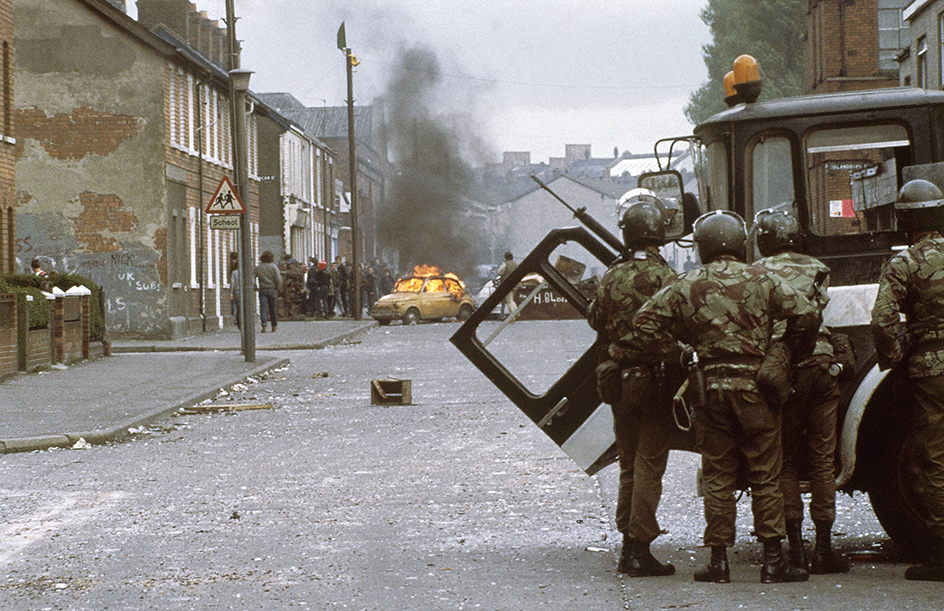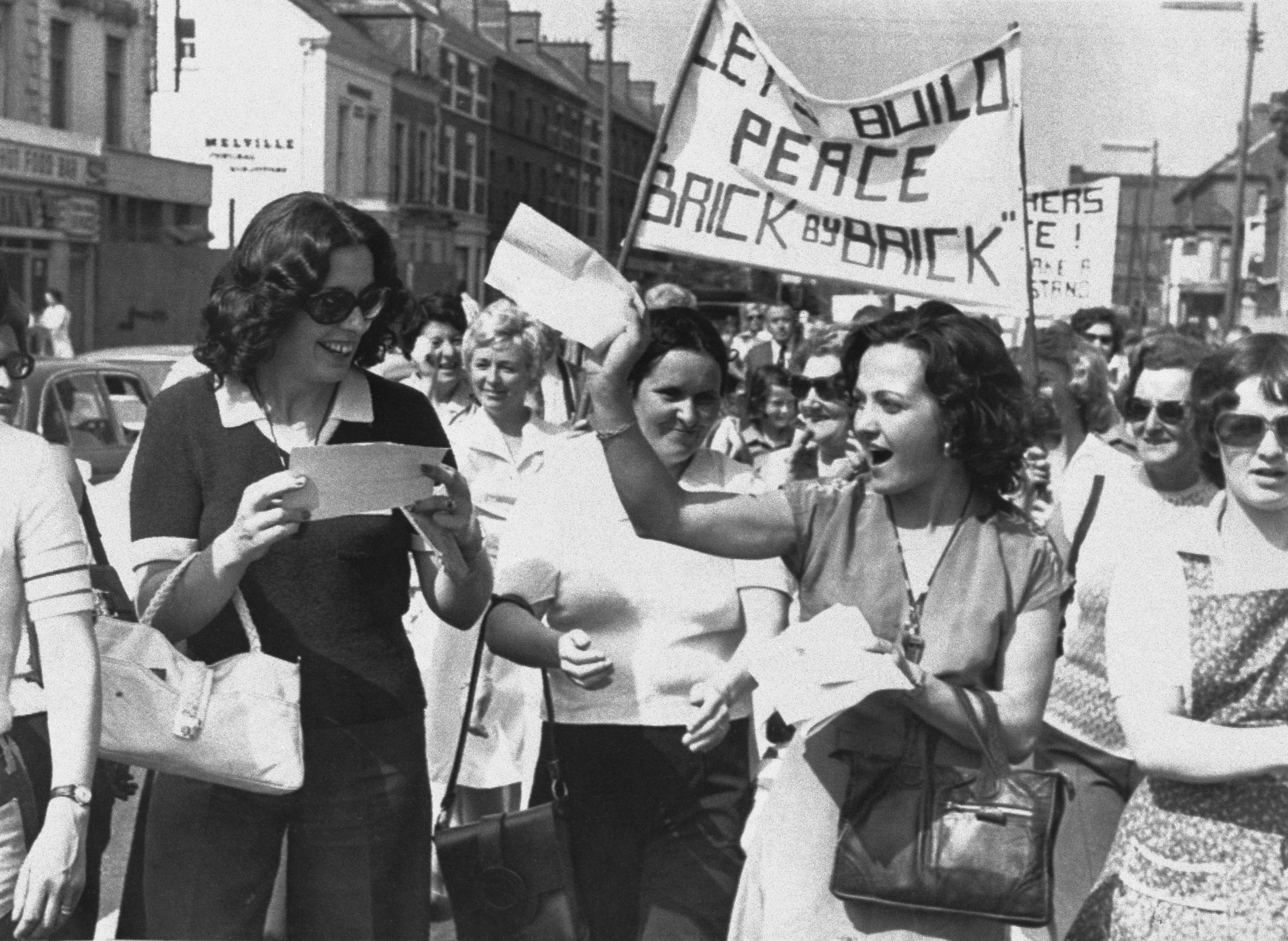Troubles is a term used to describe a period of violence in Northern Ireland from 1968 to 1998. The violence was the result of divisions between members of Northern Ireland’s Roman Catholic and Protestant communities. The conflict led to riots, bombings, and other outbreaks of violence and terrorism.

The roots of the Troubles date back many years. The island of Ireland had long been controlled by the United Kingdom (formerly Great Britain). In the 1920’s, the island split into two separate political units. One unit, the Irish Free State, was mainly Catholic and became an independent nation—now called the Republic of Ireland. The other unit, Northern Ireland, was mostly Protestant and remained part of the United Kingdom.
Rival groups emerged in Northern Ireland. Unionists, who were mainly Protestants, wanted Northern Ireland to remain part of the United Kingdom. Nationalists, generally Catholics, supported the reunification of Northern Ireland with the Republic of Ireland. The groups clashed over political, social, and cultural matters. Northern Ireland’s Catholic community claimed that Protestants violated their civil rights and discriminated against them in jobs, housing, and other areas.
In the late 1960’s, the struggle for civil rights turned violent, and the Troubles began. The Irish Republican Army (IRA), a Nationalist group, sided with the Catholics. The United Kingdom sent troops to restore order, and the IRA and British soldiers began fighting each other. The IRA and other militant Nationalist groups carried out bombings and other terrorist attacks. Unionist groups, such as the Ulster Defence Association and the Ulster Volunteer Force, also carried out attacks.
During the late 1980’s and early 1990’s, attacks by the IRA and related groups intensified in Northern Ireland and in England. The attacks also spread to continental Europe, where British soldiers and their families became targets. These actions led to violent responses by Protestant terrorist groups.
Loading the player...
Ian Paisley discusses Protestant strike

Negotiations eventually led to a 1998 peace agreement known as the Good Friday Agreement or the Belfast Agreement. The agreement set forth a framework for disarming the IRA. It also called for the establishment of a power-sharing legislature in Northern Ireland, as well as other governing bodies. Political disagreements continued, however. More than 3,500 people were killed during the Troubles. Most of the dead were innocent civilians.
See also Northern Ireland (The Troubles) .
